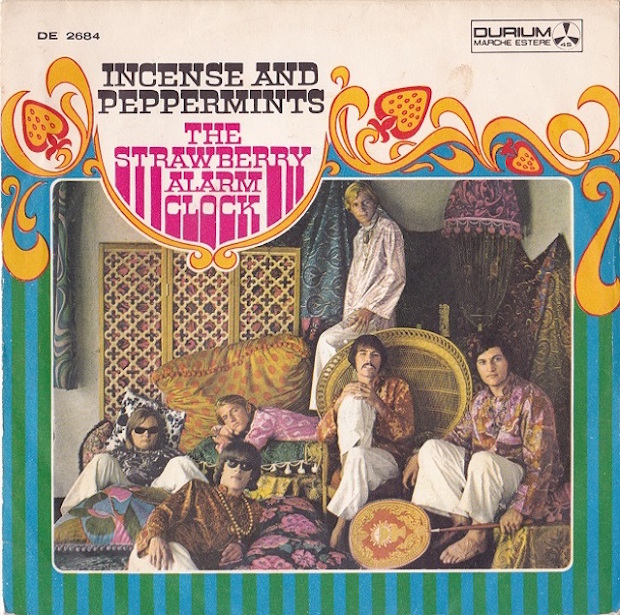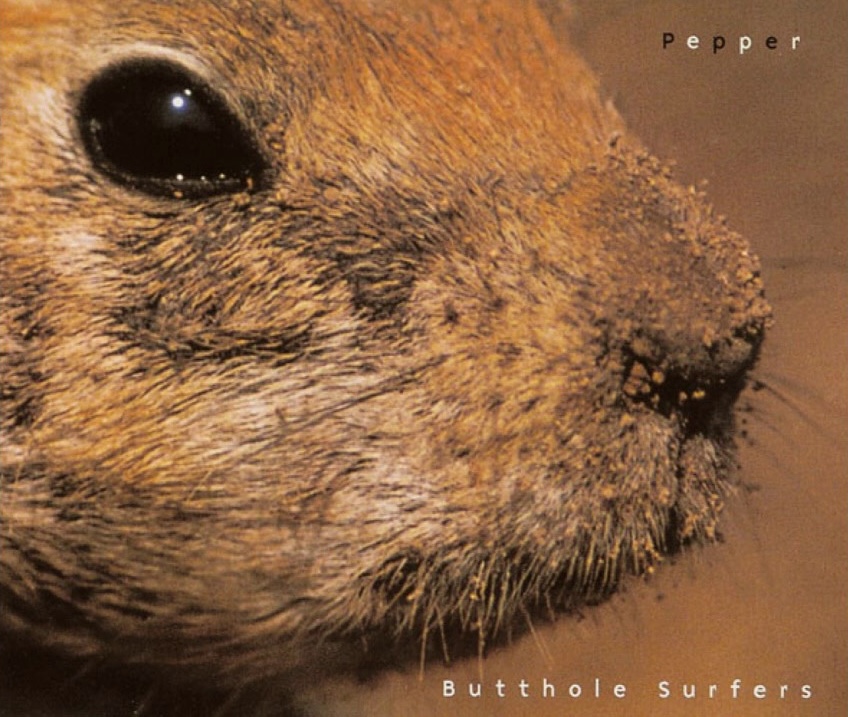November 25, 1967
- STAYED AT #1:1 Week
In The Number Ones, I'm reviewing every single #1 single in the history of the Billboard Hot 100, starting with the chart's beginning, in 1958, and working my way up into the present.
Plenty of the songs from the late-'60s psychedelic era were total nonsense. But not too many of those songs admitted to their own nonsense. So the Strawberry Alarm Clock's "Incense And Peppermints" is an outlier. It knows its lyrics -- a patched-together pastiche of vague counterculture signifiers and drug-haze gibberish -- mean nothing. And that admission is right there in the lyrics: "Incense and peppermints, meaningless nouns / Turn on, tune in, turn your eyes around."
The members of the Strawberry Alarm Clock didn't write those lyrics. Instead, those words are the product of John S. Carter, a record producer and A&R guy who would go on to work with Bob Seger and Tina Turner. (Carter and his songwriting partner Tim Gilbert also wrote the vocal melody. The members of the band claim they wrote the actual music but got screwed out of credit and royalties.) Nobody in the Strawberry Alarm Clock sang the song, either. The singer we hear delivering those lyrics is Greg Munford, a 16-year-old friend of the band who was brought in to do backing vocals and who took the lead when nobody in the band liked how they sounded on the song. Munford never ended up joining the band, even after "Incense And Peppermints" hit #1.
"Incense And Peppermints" was one of the first singles from the Strawberry Alarm Clock, a Los Angeles band who'd changed their name from Thee Sixpence after learning that there was already another Thee Sixpence somewhere out there. They never came up with another big hit after "Incense And Peppermints," and they broke up in 1970, though a reunited version of the band is still operating today. After that breakup, singer and guitarist Ed King joined Lynyrd Skynyrd -- who had once opened for the Strawberry Alarm Clock on tour -- and wrote the "Sweet Home Alabama" riff. Meanwhile, guitarist Steve Bartek went to school for composition and eventually joined Oingo Boingo. These days, he orchestrates film scores for his ex-bandmate Danny Elfman.
Given that whole backstory, it's plenty possible to hear "Incense And Peppermints" as a cheap cash-in, a pop-industry version of the acid rock that was blossoming in San Francisco during that moment. And maybe "Incense And Peppermints" is that. But it's also truly effective pop bullshit.
There's a lot going on on "Incense And Peppermints": the zonked-out organ noodling, the starry-eyed guitar riffage, the layers upon layers of backing vocals, the heavy use of cowbell. But it all works together with a brisk and hooky sense of efficiency. And Munford -- who, like fellow 16-year-old hit-singer Alex Chilton, sounds way older than his years -- delivers that gibberish with total conviction, finding the ideal middle ground between acid-fried moonchild and Vegas lounge belter. "Incense And Peppermints" does what pop music is supposed to do. It takes the sounds that are floating around in the ether -- in this case, the psych-rock of the early Grateful Dead and Jefferson Airplane -- and translates it into silly and efficient bubblegum.
The Jefferson Airplane wrote great songs, but as a singles act, they never got any higher than #5, with 1967's "Somebody To Love." They didn't hit #1 until they evolved into Starship in the '80s. So credit the Strawberry Alarm Clock, at the very least, with figuring out how to twist the Jefferson Airplane's ideas into pop perversions a lot better, and a lot more quickly, than the Jefferson Airplane themselves did.
GRADE: 8/10
BONUS BEATS: Here's the Strawberry Alarm Clock playing "Incense And Peppermints" in the background of a party scene in Russ Meyer's satirical 1970 camp classic Beyond The Valley Of The Dolls, which Meyer co-wrote with Roger Ebert:
And here's Mike Myers quoting that same scene while dancing to "Incense And Peppermints" in 1997's Austin Powers: International Man Of Mystery:






